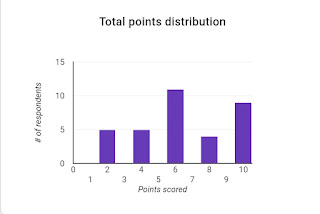“Literature Review” refers to the collection of scholarly writings on a topic. This includes peer-reviewed articles, books, dissertations and conference papers. When reviewing the literature, be sure to include major works as well as studies that respond to major works. You will want to focus on primary sources. A comprehensive review of literature is important because it: provides an up-to-date understanding of the subject and its significance; identifies the methods used in previous research on the topic and provides comparisons for your own research findings.
Purposes to conduct Review of related literature
The review of Related literature starts helping the researchers from the beginning. so it is a part and parcel of first step-identification of problem but it is not a separate step of research. It can depict whether any research has been conducted not.
To provide theories, ideas, the explanation for hypotheses which may prove useful in the formulation of a new problem
•To provide the sources of hypotheses. The researcher can formulate research hypotheses based on available studies.
•To suggest a method, procedure, sources of data and statistical techniques appropriate to the solution of a problem.
•To enable the researcher to improve his own investigation
•To provide some insight regarding the strong point and limitation of the previous studies.
Sources Of Literature Review
Generally, sources are mainly divided into three:
1. Primary source
2. Secondary source
3. Tertiary Source
A Primary source is an original object or document – the raw material or first-hand information, source material that is closest to what is being studied. Scientific and other peer-reviewed journals are excellent sources for primary research.
A secondary the source is something written about a primary source. Secondary sources include comments on, interpretations of, or discussions about the original material. Secondary source materials can be articles in newspapers or popular magazines, book or movie reviews, or articles found in scholarly journals that evaluate or criticize someone else’s original research.
A tertiary source is an index or textual consolidation of primary and secondary sources. Some tertiary sources are not to be used for academic research unless they can also, be used as secondary sources, or to find other sources.
The important sources of review of related literature is:
1) Dissertations
These can be useful sources of information. However, there are disadvantages: They can be difficult to obtain since they are not published, but are generally only available from the library shelf. The student who carried out the research may not be an experienced researcher and therefore you might have to treat their findings with more caution than published research.
2)Books
Books tend to be less up-to-date as it takes longer for a book to be publisher than for a journal article. Textbooks are unlikely to be useful for including in your literature review as they are intended for teaching, not for research, but they do offer a good starting point from which to find more detailed sources.
3)Journal articles
These are good, especially for up-to-date information. Bear in mind, though that it can take up to two years to publish articles. They are; Frequently-used in literature reviews because they offer a relatively concise, Up-To-date format for research and because all reputable journals are refereed (i.e. Editors publish only the most relevant and reliable research).
4)Conference Proceedings
These can be useful in providing the latest research, or research that has not been the publisher. They are also helpful in providing information on which people are currently involved in which research areas, and so can help track down other work by the same researchers.
5)Internet
The fastest-growing source of information is on the Internet. It is impossible to characterize the information available but here are some hints about using electronic sources:
• Bear in mind that anyone can post information on the Internet so the quality may not be reliable
• The information you find may be intended for a general audience and so not be suitable for inclusion in your literature review (information for a general the audience is usually less detailed)
• More and more refereed electronic journals (e-journals) are appearing on the Internet – if they are refereed it means that there is an editorial board that evaluates the work before publishing it in their e-journal, so the quality should be more reliable (depending on the reputation of the journal).
6)Government/corporate reports
Many government departments and corporations commission or carry out research. Their published findings can provide a useful source of information, depending on your field of study.
7)CD-ROMS
At the moment, few CR-ROMs provide the kind of specialized, detailed information about academic research that you need for your own research since most are intended for a general audience. However, more and more bibliographies are being put onto CD-ROM for use in academic libraries, so they can be a very valuable tool in searching for the information you need.
8)Magazines
Magazines intended for a general audience (e.g. Time) is unlikely to be useful in providing the sort of information you need. Specialized magazines may be more useful (for example business magazines for management students) but usually magazines are not useful for your research except as a starting point by providing news or general information about new discoveries, policies, etc. that you can further research in more specialized sources.
Type of sources
Click here to join the classroom
Click on the link for further details
Document in APA format
After reading the content please do check out the quiz
Have a look st my poster
Have a look at my brochure
Have a look up on the data I collected,Click here









